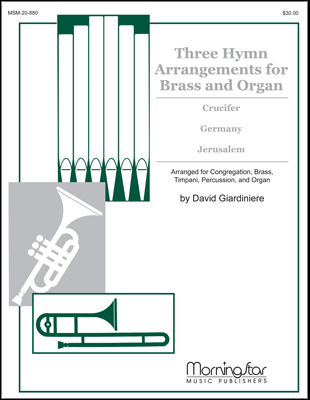- |
User Links
Anticipating the Heavenly Sabbath

Lord of the Sabbath, hear our vows
Author: Philip Doddridge (1737)Published in 182 hymnals
Printable scores: PDF, MusicXMLAudio files: MIDI
Representative Text
1 Lord of the Sabbath, hear us pray,
in this your house, on this your day;
and own, as grateful sacrifice,
the songs which from your temple rise.
2 Now met to pray and bless your name,
whose mercies flow each day the same,
whose kind compassions never cease,
we seek instruction, pardon, peace.
3 Your earthly Sabbaths, Lord, we love,
but there's a nobler rest above;
to that our lab'ring souls aspire
with ardent hope and strong desire.
4 In your blest kingdom we shall be
from ev'ry mortal trouble free:
no sighs shall mingle with the songs
resounding from immortal tongues.
5 No rude alarms of raging foes,
no cares to break the long repose,
no midnight shade, no waning moon,
but sacred, high, eternal noon.
6 O long-expected day, begin,
dawn on these realms of woe and sin!
Break, morn of God, upon our eyes;
and let the world's true Sun arise!
Source: Trinity Psalter Hymnal #151
Author: Philip Doddridge
 Philip Doddridge (b. London, England, 1702; d. Lisbon, Portugal, 1751) belonged to the Non-conformist Church (not associated with the Church of England). Its members were frequently the focus of discrimination. Offered an education by a rich patron to prepare him for ordination in the Church of England, Doddridge chose instead to remain in the Non-conformist Church. For twenty years he pastored a poor parish in Northampton, where he opened an academy for training Non-conformist ministers and taught most of the subjects himself. Doddridge suffered from tuberculosis, and when Lady Huntington, one of his patrons, offered to finance a trip to Lisbon for his health, he is reputed to have said, "I can as well go to heaven from Lisbon as from Nort… Go to person page >
Philip Doddridge (b. London, England, 1702; d. Lisbon, Portugal, 1751) belonged to the Non-conformist Church (not associated with the Church of England). Its members were frequently the focus of discrimination. Offered an education by a rich patron to prepare him for ordination in the Church of England, Doddridge chose instead to remain in the Non-conformist Church. For twenty years he pastored a poor parish in Northampton, where he opened an academy for training Non-conformist ministers and taught most of the subjects himself. Doddridge suffered from tuberculosis, and when Lady Huntington, one of his patrons, offered to finance a trip to Lisbon for his health, he is reputed to have said, "I can as well go to heaven from Lisbon as from Nort… Go to person page >Text Information
| First Line: | Lord of the Sabbath, hear our vows |
| Title: | Anticipating the Heavenly Sabbath |
| Author: | Philip Doddridge (1737) |
| Meter: | 8.8.8.8 |
| Language: | English |
| Copyright: | Public Domain |
Notes
Lord of the Sabbath, hear our vows. P. Doddridge. [Sunday, or Divine Worship.] This hymn, beginning "O God of Sabbath, hear our vows," is No. 30 in the D. MSS., is dated "Jan. 2, 1736-7," and headed "The Eternal Sabbath. From Heb. iv. 9." In Job Orton's edition of Doddridge's (posthumous) Hymns, &c, 1755, No. 310, it was given as "Lord of the Sabbath," &c, in 5 stanzas of 4 lines, and with the same title, and repeated in J. D. Humphreys's edition of the same, 1839, No. 336. In Mr. Brooke's manuscript, 1739-40, it reads "O God of Sabbath," &c. The 1755 text is in use in most English-speaking countries, but the most popular form of the hymn is that beginning "Lord of the Sabbath, hear us pray" particulars of which, and other arrangements of the hymn, we here append:—
1. Thine earthly Sabbaths, Lord, we love. This cento, composed of stanzas ii.-iv. and ii., was given as No. 352 in Rippon's Baptist Selection, 1787, and is found in full or in part in several modern hymnals.
2. Lord of the Sabbath, hear us pray. This altered text appeared in Cotterill's Selection, 8th ed., 1819, No. 4 (the original as in Orton having been in former editions), and is by Cotterill, or James Montgomery, or possibly the joint work of the two. Of this text, in 6 stanzas of 4 lines, stanzas i., iii., iv., vi. are altered from Doddridge, and stanzas ii., v., are new. This text was repeated in Montgomery's Christian Psalmist, 1825; and again, either in its full or in an abridged form, in a large number of hymn-books in Great Britain and America.
3. O Lord of holy Rest, we pray. This form of the hymn appeared in R. C. Singleton's Anglican Hymn Book, 1868. It is from the Doddridge-Cotterill text, with alterations, and a slight return to the original.
When these forms of the hymn are taken together, it is found that its use is very extensive in all English-speaking countries, the Doddridge-Cotterill text being the most popular.
--John Julian, Dictionary of Hymnology (1907)
Tune
GERMANY (Gardiner)WAREHAM (Knapp)
William Knapp (b. Wareham, Dorsetshire, England, 1698; d. Poole, Dorsetshire, 1768) composed WAREHAM, so named for his birthplace. A glover by trade, Knapp served as the parish clerk at St. James's Church in Poole (1729-1768) and was organist in both Wareham and Poole. Known in his time as the "coun…


 My Starred Hymns
My Starred Hymns




